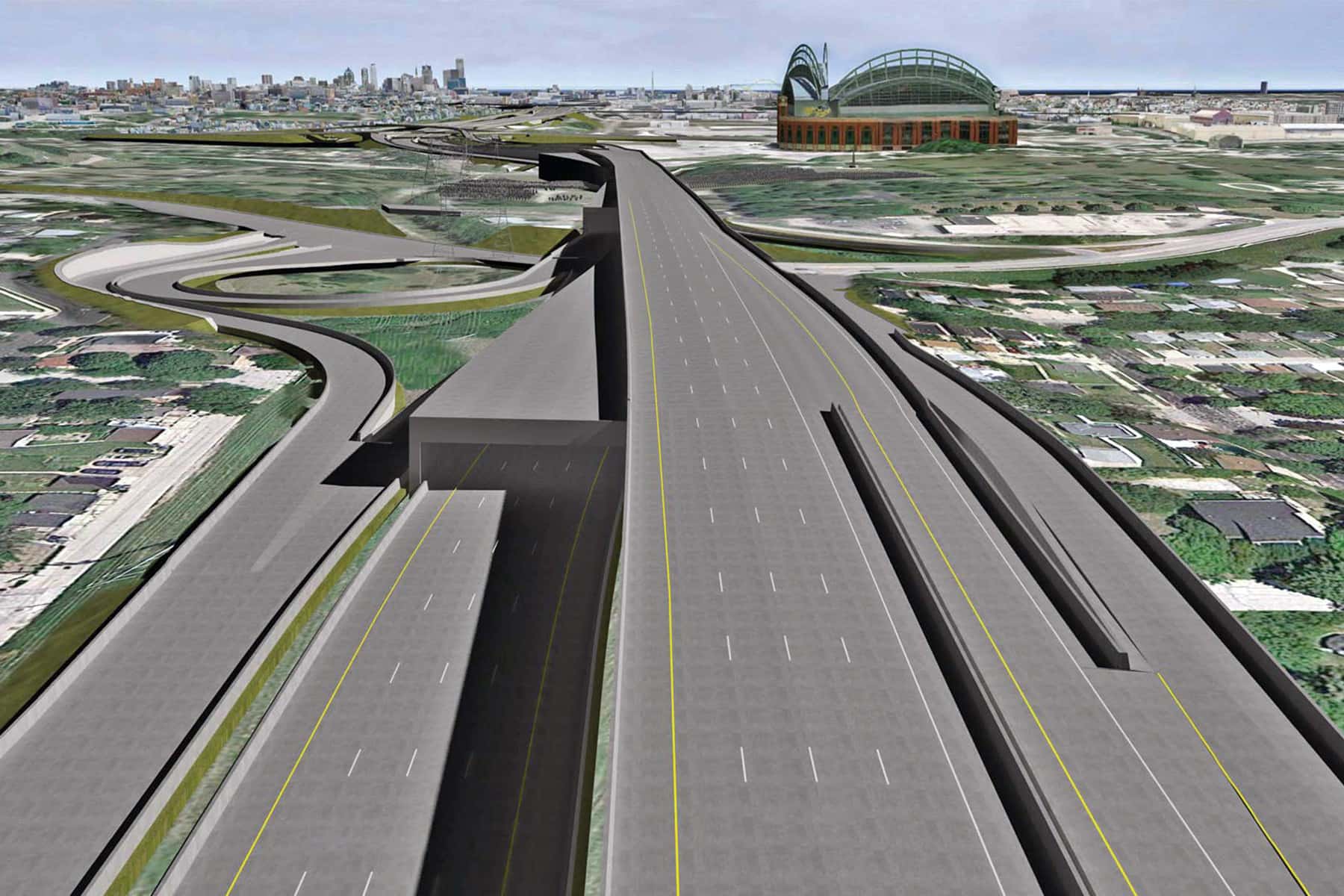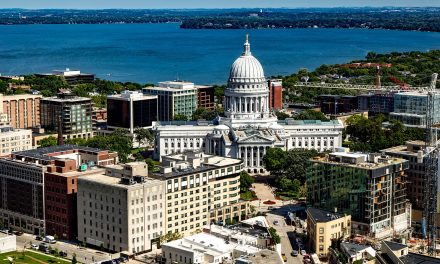
Governor Tony Evers announced his Executive Budget on February 17, and in the address he emphasized improving infrastructure, addressing climate change and increasing racial justice.
Disappointingly, the enumeration of the I-94 East-West expansion project in Milwaukee was included in the Governor’s budget recommendations.
“MICAH’s opposition to rebuilding I-94 between the Marquette and Zoo Interchange lanes is longstanding,” stated Rev. Joseph Jackson, President of MICAH. “We joined other community groups in a federal lawsuit in 2017 to stop expansion. Monies were not included in Governor Walker’s budget and the project was dropped. With the inclusion of the expansion in the Governor’s current budget, we once again raise the issue of racial equity which this proposal fails to address. We call on WisDOT to develop an alternative that rebuilds the highway without adding lanes and provides benefits to lower income communities of color equal to the benefit that will be provided to affluent white communities who will take advantage of increased ease in access to Milwaukee jobs, entertainment, recreation and other valuable City resources. And we call for that same racial equity in terms of the many jobs that will be created and access to transit alternatives for those without cars.”
In addition to supporting the enumeration of I-94, the Governor’s proposed budget included a 2.5 percent increase in funding to transit operating aids for a $3.5 million increase. While that increase in transit funding is appreciated, it pales in comparison to the estimated $1 billion for the expansion project, which will not address Wisconsin’s transportation needs. Studies show that highway expansion projects do not decrease road congestion.
“Continuing to expand Wisconsin’s highways – whether by resurrecting the expansion of I-94 East-West or other future expansion projects – will only drive our state deeper into debt, divert funds from other important infrastructure investments, and worsen congestion by drawing more cars to the road,” said Susanna Cain, Transform Transportation Associate, WISPIRG. “Adding highway lanes rarely results in congestion relief. Instead, bigger roads draw more traffic and increase our dependence on cars. All this has seriously negative impacts for our communities, for the climate and for taxpayers. WISDOT should develop a plan that rebuilds I-94 without adding lanes. The administration should prioritize ‘fix-it-first’ — repairing existing infrastructure rather than green-lighting new major projects — and give Wisconsinites a wider range of high-quality, safe, low-emission options for getting around.”
Beyond concerns about the environmental and racial just impacts of the project, advocates also question about the lack of a comprehensive Environmental Impact Statement that takes into account changing transportation patterns.
“As Wisconsin enters the most challenging budget season in a decade, the Evers Administration remains adamant in its pursuit of the I-94 East-West expansion. At the same time, the administration has asked government agencies to cut more than $300 million dollars from their budgets,” said Gregg May, Transportation Policy Director, 1000 Friends of Wisconsin. “What is the rush? The pandemic has clearly altered travel patterns, with 80% of office workers saying they would like to work from home at least once a week and over half wanting at least three days a week. The prudent move for Wisconsin is to repair existing roads and transit and then see how a post-pandemic workforce uses our transportation system instead of investing a billion dollars as if the pandemic never happened.”
The comprehensive Environmental Impact Statement should also consider changing stormwater flooding and other climate impacts.
“As Wisconsin experiences more severe wet weather events due to climate change, and stormwater runoff and flooding increases, it is imperative that our infrastructure be constructed in a more resilient way. Adding lanes to local highways increases stormwater runoff from paved surfaces, which contributes to more pollution and flooding of our rivers. At a minimum, a new, robust Environmental Impact Statement must be prepared on the project in order to address these growing concerns,” said Cheryl Nenn, Milwaukee Riverkeeper.
There has been long held community opposition to the I-94 expansion because of its impacts on air and water quality, neighborhood segregation, public health and racial justice impacts, increased carbon emissions, and taxpayer cost. The Wisconsin DOT and the Governor have not adequately addressed these concerns. A comprehensive Environmental Impact Statement and public input process are necessary.
“Strong community opposition to the I-94 expansion project is a logical and predictable response to a plan that fails to take into account the full extent of the project’s impacts on the environment and on the health of those living in affected neighborhoods,” said Andrea Gelatt, Senior Staff Attorney, Midwest Environmental Advocates.
During his nomination process for Secretary of Transportation, Pete Buttigieg tweeted, “Black and brown neighborhoods have been disproportionately divided by highway projects or left isolated by the lack of adequate transit and transportation resources. In the Biden-Harris administration, we will make righting these wrongs an imperative.”
The coalition hopes that the Evers Administration will better align with the Biden administration moving forward and will continue its commitment to improving transportation inequity.
“Much of Governor Evers’ Executive Budget addresses urgent community needs, especially related to climate change, environmental protection, healthy communities and racial justice. It is extremely disappointing to see the inclusion of the I-94 expansion project in this budget, as it stands in direct conflict with the values the rest of the document represents,” said Cassie Steiner, Senior Campaign Coordinator, Sierra Club – Wisconsin Chapter.
The Coalition for More Responsible Transportation continues to urge decision-makers to repair the highway in its existing footprint and to complete a comprehensive Environmental Impact Statement process.
© Render
Wisconsin Department of Transportation













